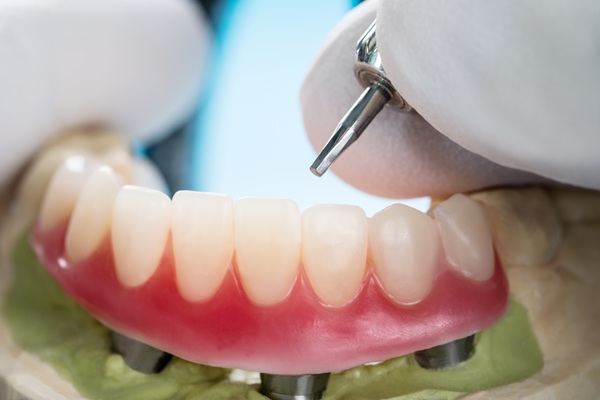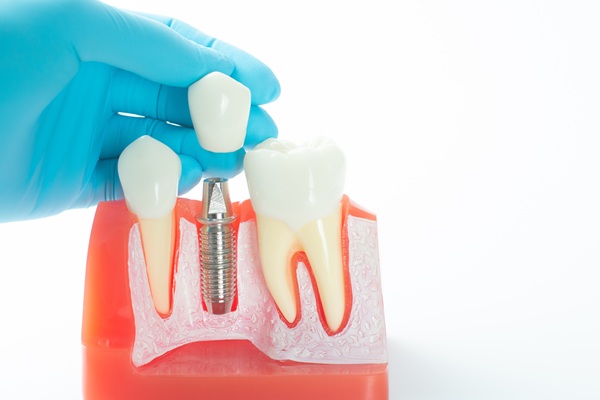Gum Grafting Procedure From an Oral Surgeon

A gum grafting treatment may be recommended if gum recession is causing issues with your oral health or appearance. An oral surgeon with specific training in this sector conducts different gum grafting treatments regularly.
An overview of gum grafting
Gum grafting is a procedure that includes placing a tiny quantity of new tissue in an area where it has diminished or disappeared entirely, usually to prevent gum recession from worsening or to cover exposed root surfaces. Tissue for this treatment may originate from several places, but it is commonly removed from the palate (roof of the mouth). The patient is numbed during this process. Then, using suturing material thinner than human hair, the dentist gently sutures (sews) the tissue in place.
After the grafting surgery, the body's natural recuperation mechanism kicks in. New blood vessels develop in the graft, ensuring that it fuses with nearby tissues. A successful graft may help stop issues like tooth sensitivity and additional gum recession.
When is gum grafting recommended?
In some cases, patients can see or feel the issue themselves. Exposed dental roots often make the teeth seem abnormally "long." They are also usually darker than the natural white crowns. Gum recession is a problem that worsens with age. Also, it is not merely a cosmetic issue; it may also have significant consequences on dental health.
Gingival grafting as a treatment for gum recession
The gingival grafting surgery may be advised after a complete examination and evaluation of the teeth, gums, and general health. Tissue for this treatment may come from many places, including the region next to the recession, the hard palate, or another person. With the latter, the donated tissue has been medically treated to make it safe to use.
Grafting may be done in various ways. Suppose the recession occurs around an area that is not visible when smiling or speaking. In that case, extra gum tissue may be implanted there to prevent future recession without attempting to hide the tooth-root surface entirely. Since the tissue is isolated from its blood supply, this operation is called a free gingival transplant, and it takes roughly 45 minutes to complete. It has a high success rate. The method gets more complicated and takes longer if the goal is to cover root surfaces, but it is still quite effective.
Grafting treatments are usually performed under local anesthetic and are painless in most cases. Even if tissue has been taken from the palate, patients should have minimal pain following the procedure, since the donor region is normally coated with a calming liquid substance. Also, patients can take over-the-counter or prescription anti-inflammatory medications for relief from pain, which is usually temporary. A soft diet (along with an antibiotic) may be prescribed for the next week or two to enable the tissues properly heal.
In conclusion
It is essential to practice proper oral hygiene after a gum grafting procedure; this will help avoid gum issues in the future. Talk to the oral surgeon if you think that you might need this procedure.
Request an appointment here: https://corderoperiodontics.com or call Rafael E. Cordero, DDS PA at (561) 763-9221 for an appointment in our Palm Beach Gardens office.
Check out what others are saying about our services on Yelp: Read our Yelp reviews.
Recent Posts
Implant-supported dentures often appeal to patients who feel frustrated by loose or uncomfortable traditional dentures. This treatment uses dental implants to securely anchor a custom denture for a solution that looks natural and feels more stable in everyday life. Careful planning from a periodontist or prosthodontist can help determine whether implant-supported dentures or traditional dentures…
Appearance may be one of the first things people think about when it comes to tooth replacement. However, improved appearance is just one of the many benefits of replacing missing teeth. Tooth replacement can be key to improving not only how you feel about your smile but also boosting your oral health.Whether one chooses dentures,…
The jawbone is the part of the face that holds many essential elements together, such as the teeth, ligaments, and muscles; however, bone grafting may sometimes be necessary if the jawbone is too weak to perform these tasks. A person’s jawbone can deteriorate over time, whether due to age, genetics, poor oral health, cancer, or…
A periodontist can help improve gum recession. This is one of the first signs of gum disease. Seeing this dental care provider early can help you target the problem with the necessary treatment. Here are the details on how a periodontist can help fix receding gums.Getting a regular professional dental cleaning can remove the plaque…


